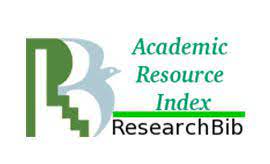Science education: searching of the effective publication practices
DOI:
https://doi.org/10.51707/2618-0529-2020-18-11Keywords:
science education, scientometrics, Scopus, Web of Science, research methodology, publication ethicsAbstract
The article attempts to propose the agenda of problems related to the requirements of the Ukrainian legislation in the research field regarding publications in journals indexed by the Scopus and Web of Science scientific databases to foreign readers of the journal. The provisions of the article have been pre-tested within the framework of the 12th international scientific conference on “Gifted children — intellectual potential of the state” (2019) and have been expanded to take into account the trends of 2020. As a result of the analysis, a number of approaches that could update the publishing strategies of Ukrainian researchers in the field of scientific education were identified. In particular, without claiming the completeness of the recommendations, a number of key recommendations have been formed that can guide potential authors. These include the following principles: authors need to develop a level of English in order to qualitatively develop a source base, to learn to work with English texts from the perspective of the future reader and from the position of the author; writing articles in international journals that are part of scientometric databases requires a distance from the tradition of writing articles in academic journals of Ukraine; for domestic researchers of science education, there is ample opportunity for publications both in specialized journals as well as in journals with related topics (development of giftedness; information technologies in education, etc.); researchers should develop international contacts with experienced authors in the field of science education and initiate joint research and publications as a result; mastering search tools of scientometric databases is a necessary requirement for preparatory steps that precede the preparation of the text; reseacrchers should get used to long and painstaking work with reviewers, which precedes the acceptance of the article to print; authors should avoid predatory models when presenting research results through developed awareness of international standards of publication ethics and academic integrity.
References
Andersen, J., & Stine Lomborg (2020). Self-tracking and metric codification in digital infrastructures for scholarly communication. The Information Society, 36:1, 43–52. DOI: 10.1080/01972243.2019.1685039
Committee on Publication Ethics. (2020, March 29). Retrieved from https://publicationethics.org/
Gralka, S., Wohlrabe, K., & Bornmann, L. (2019). How to measure research efficiency in higher education? Research grants vs. publication output. Journal of Higher Education Policy and Management, 41:3, 322–341. DOI:10.1080/1360080X.2019.1588492
Schweitzer, S., & Brendel, J. (2020). A burden of knowledge creation in academic research: evidence from publication data. Industry and Innovation. DOI: 10.1080/13662716.2020.1716693
Some Measures to Eliminate the Bad Orientation of “Papers Only” in Science and Technology Evaluation (Trial). (2020, March 29). Retrieved from http://www.most.gov.cn/mostinfo/xinxifenlei/fgzc/gfxwj/gfx-wj2020/202002/t20200223_151781.html
Some Suggestions on Standardizing the Use of SCI Paper Indexes in Higher Educational Institutes and Establishing Correct Evaluation Orientation. (2020, March 29). Retrieved from http://www.moe.gov.cn/src-site/A16/moe_784/202002/t20200223_423334.html
Dejaki pytannja derzhavnoji atestaciji nau- kovykh ustanov : nakaz MON Ukrayiny vid 17.09.2018 r. No. 1008 [Some questions on the state attestation of research institutions (order of MES of Ukraine No.1008 from September, 17 2018)]. (2020, March 29). Retrieved from https://zakon.rada.gov.ua/laws/show/z1504-18 [in Ukrainian].
Poriadok prysvoiennia vchenykh zvan naukovym i naukovo pedaghoghichnym pracivnykam : nakaz Ministerstva osvity i nauky Ukrajiny vid 14.01.2016 r. № 13 [The procedure of assign- ment of scientific titles to scientific and scientif- icpedagogical workers (order of MES of Ukraine No.13 from January, 14 2016)]. (2020, March 29). Retrieved from https://zakon.rada.gov.ua/laws/show/z0183-16 [in Ukrainian].
Projekt Porjadku prysudzhennja naukovykh stu- peniv doktora nauk i doktora filosofiji specializo- vanymy vchenymy radamy zakladiv vyshhoji osvity (naukovykh ustanov). [Draft Order of awarding the scientific degrees of Doctor of Sciences and Doctor of Philosophy by specialized academic councils of higher education institutions (scientific institutions)]. (2020, March 29). Retrieved from https://naqa.gov.ua/wpcontent/uploads/2020/02/проєкт_ Порядокприсудженнянауковихступенів.pdf [in Ukrainian].
Svyrydenko D. B. (2019). Doslidzhennja u naukovij osviti: vyklyky naukometriji [Research in Science Education : The Challenges of Scientometrics]. Proceedings from 12th International Scientific and Practical Conference “Gifted children — the intellectual potential of the state”. (pp. 304–307). Kyjiv, Instytut obdarovanoji dytyny NAPN Ukrajiny [in Ukrainian].
Downloads
Published
How to Cite
Issue
Section
License
Copyright (c) 2021 SCIENTIFIC NOTES OF JUNIOR ACADEMY OF SCIENCES OF UKRAINE

This work is licensed under a Creative Commons Attribution 4.0 International License.













